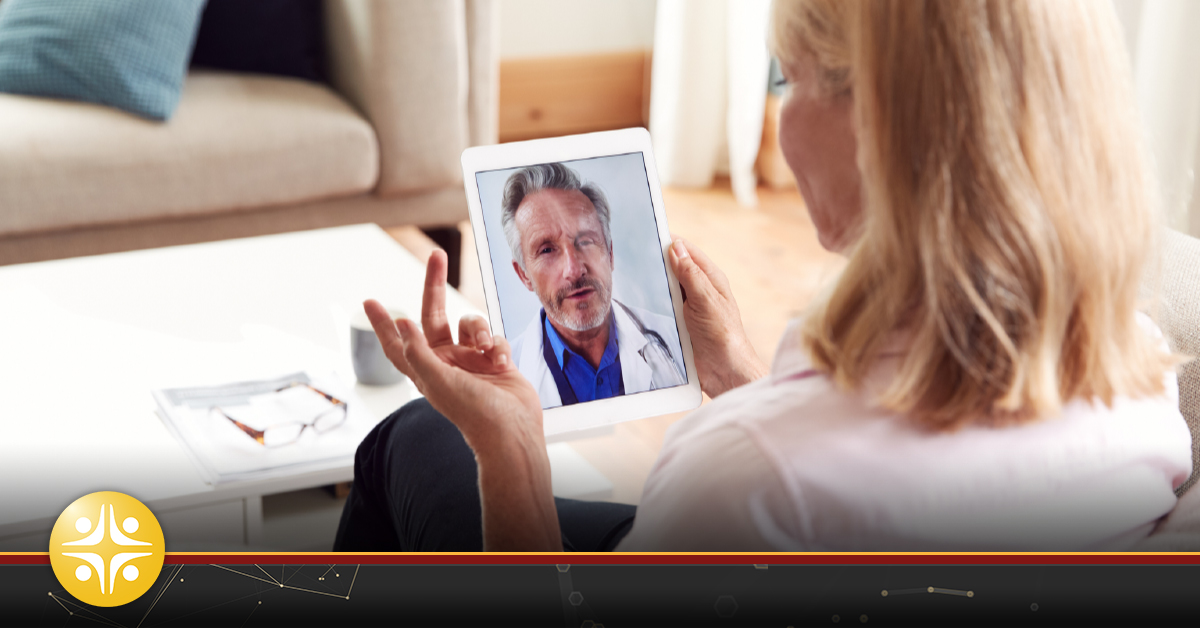5 Technologies Impacting Patient Engagement
Becky James

Patient engagement still matters in the competitive healthcare arena. While the COVID-19 pandemic distracted us momentarily from one of the hottest trends in healthcare today, as we return to our new sense of normalcy, the shift toward healthcare consumerism will resume.
Creating a positive end-user experience for our patients will ensure these consumers of our services will feel loyal to our doctors and facilities—instead of the healthcare competitor down the street. Today, technology is helping healthcare providers forge stronger bonds with our patients. Here are five technologies having a positive impact on our ability to attract and retain patients.
#1 Augmented Reality (AR)
AR is digital software designed to capture the attention of the end-user. By wearing a tool like Google Glass, or virtual reality glasses, AR tools can help immerse the consumer into a new virtual environment. AR has been studied as a tool to provide a rich user-centric educational opportunity for patients. This is particularly helpful to educate patients with chronic conditions. Creating this kind of a learning experience for patients; one study showed AR is effective in increasing health education 96% of the time.
#2 Gamification
You’ve seen video games. Gamification uses some of the same engaging techniques to make for a better end-user experience when using a technology too. Revel points out, “Progressive, patterned activities that individuals enjoy can better influence their behavior, and motivate them to act.” Gamification can be applied in healthcare to improve patient educational materials or health screening tools. It can make a game out of some of the necessary touchpoints needed to help patients reduce smoking or lose weight. It can help with preventative care and chronic disease management.
#3 Internet of Things (IoT)
IoT devices are everywhere, including as close as your Fitbit or Apple Watch. IoT are small remote sensors coupled with a software application to capture raw patient data and transmit it over the Internet to a clinical facility. But hospitals use IoT in many more sophisticated ways beyond your personal wearable health device. For the chronically ill, having a remote sensor in their home can cut down on trips to a healthcare facility. These patients can transmit vital signs, heart rhythms, blood sugar, and more, to their clinical provider from the privacy of their homes. Then their clinician can even consult with the patient over the Internet in a virtual telemedicine house call. The convenience of these tools cannot be discounted; they are technologies that your patients will greatly appreciate.
#4 Machine Learning
Machine learning is a software algorithm that allows the computer to “learn” from its interactions with a human being. These algorithms have worked their way into websites we use every day, from Google to Amazon. Healthcare providers and insurance carriers can use these tools for a more engaging patient experience when they make an appointment or ask a question of their doctor via an online patient portal. Machine learning can help personalize a healthcare experience in a way that is not only engaging, it can help with patient education to improve their health.
#5 Natural Language Processing (NLP)
NLP is another computer algorithm that is often used with ML in tools like your Alexa or Siri. It is NLP that allows your Alexa to respond to your questions by discerning what you say and how to respond back in a way that mimics human interactions. NLP can take what could be a cold impersonal computer interaction and turn it into something that seems like you’re talking to another person. We’re seeing NLP at use in online patient portals, where the computer interacts intelligently with the patient, increasing their engagement and holding their interest.
Patient engagement is not going away anytime soon. These five technologies are the tip of the iceberg; more tools are being developed every day to benefit our hospitals and the patients we serve.
Contact our healthcare recruitment experts today for more information.

